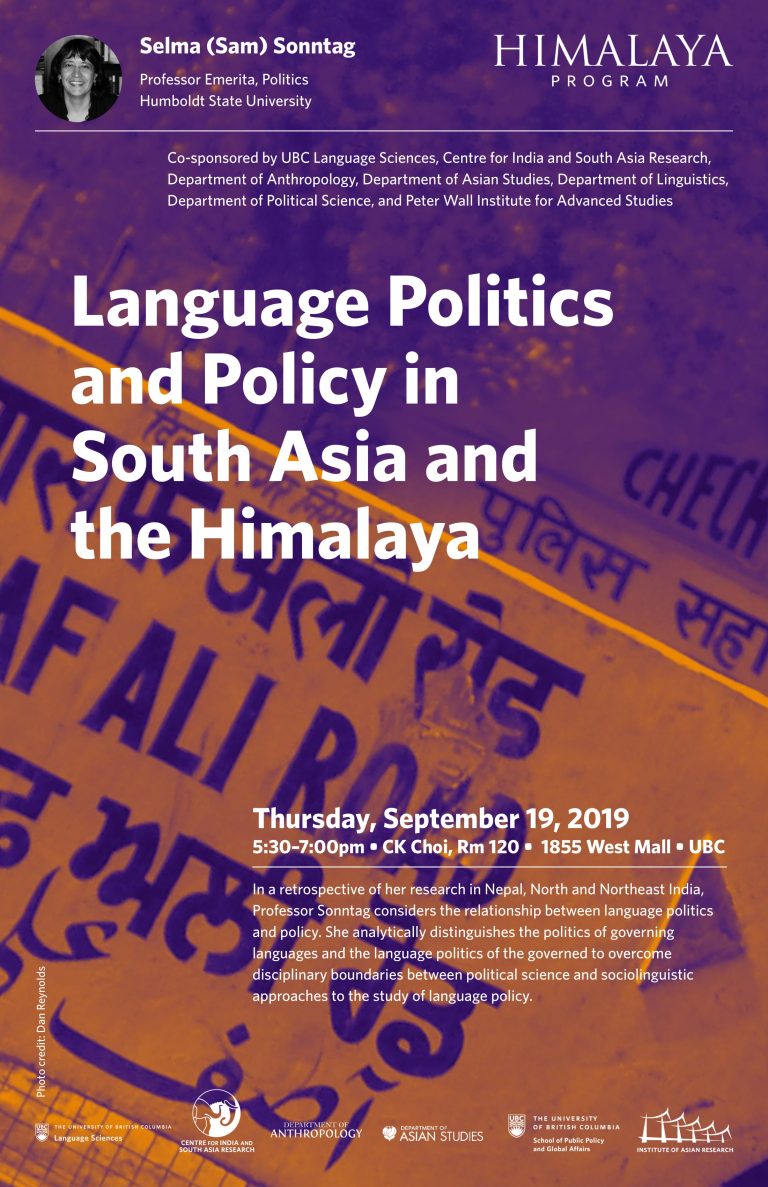This event is in collaboration with the UBC Himalaya Program.
Abstract
In this retrospective of my research in Nepal, North India and Northeast India, I consider the
relationship between language politics and language policy. My research in North India in the
early 1990s contrasted the politics surrounding the status of Urdu in Bihar and Uttar Pradesh. I
argued that in the 1980s differences in the consolidation of political power between the two
states explained why granting Urdu official status was less controversial in Bihar than in Uttar
Pradesh. My focus was on the politics of language policy-making or what I call the politics of
governing languages. I also conducted fieldwork in Nepal during the same research stint, in the
aftermath of the people’s movement that ended absolute monarchy. I explored the impact of a
new multilingual policy in education and broadcasting on the Tamang and the Tharu, arguing
that the policy encouraged ethnic identity formation among the former and language creation
among the latter. Language policy had spurred political activity on the part of both groups—what
Partha Chatterjee calls the politics of the governed.
This relationship between language politics and language policy, i.e., analytically distinguishing
the politics of governing languages from the language politics of the governed, can also be
gleaned from my subsequent work on language politics in India’s northeast. I posited that the
establishment of an autonomous council in 1988 in Darjeeling ensued from the interplay between
the politics of the governed and the politics of governing: while the language demands of the
Gorkha movement had been integrationist—for recognition of Nepali as an Indian language—the
muddled politics of governing, which pitted the union government against the state government,
led to an experimental policy instituting self-government. Most recently, I have focused on
language politics in Assam. Employing a historical institutionalist approach, I discuss how the
pre-colonial multilingual language regime began shifting to a monolingual policy of standardized
Assamese as a result of the expansion of the political reach and make-up of the ruling power,
setting the stage for the intense demotic politics that have characterized Assam ever since.
Presenter
Selma K. (“Sam”) Sonntag is Professor Emerita of Politics at Humboldt State University in
California and Affiliate Professor at the University of Colorado, Boulder. Her extensive research
and publications focus on the politics of language, primarily in South Asia, but also in the United States, Europe and South Africa.
This event will be preceded by the CISAR Meet & Greet.
